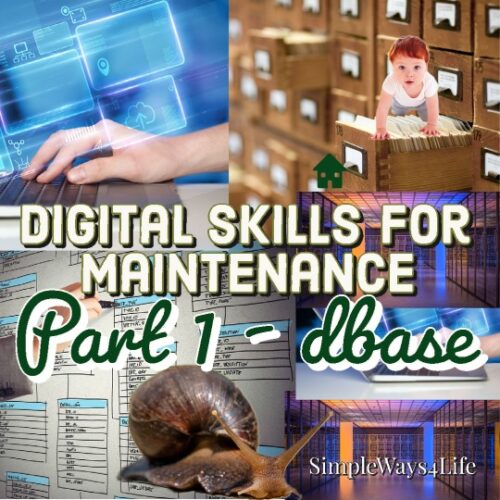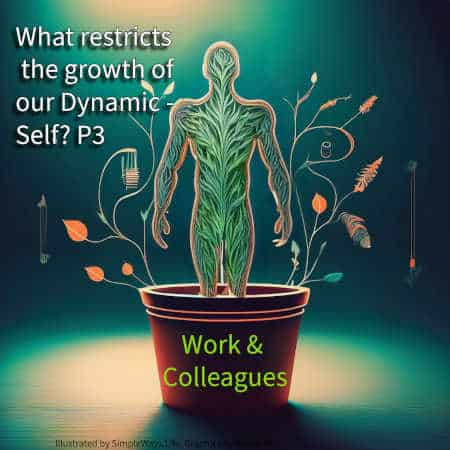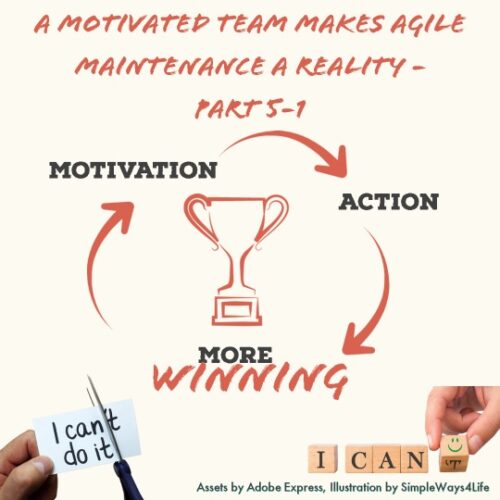We all have skills that we don’t categorize as skills or may be we don’t know that they are real skills that are in demand. Sometimes the ignorance of the terminologies of a professional skill imprints a false perception that it is hard to reach or totally out of our reach. To simplify this concept usually I like to draw the attention to the project management skills we naturally have. This will allow you to see the project management you do in your regular daily activities.
Know what is not a project, to spot your real projects
Not to get the PMI team arguing about the topic. Let us exclude what is not a project. What is not a project is mainly anything that is done repeatedly in the same way and every time has the same output. So let’s start by an everyday example. The cup of coffee I take in the break at 10am daily from same machine is not a project. However, whomever brought the coffee machine in the first place made a project. Cooking for the employees a 100 meal daily of 4 courses repeated weekly is not a project. Cooking at home a different dish daily is every time a project. Defrosting a pizza or a premade dish is not a project.
A project is something different that we do and we do its parts successfully. The organizing ability to prepare the ingredients and cook them successfully to reach the meal charter that was in your mind or in the recipes book; is a project. Moreover it might yield some lessons learned that would make your next cooking session a better experience.
The yearly vacation in case you are blessed by having one, is a project. You could master the preparation for this vacation that you get it successful based on your charter every time. That’s a skilled travel agent inside you with project management capabilities. A skill that you might overlook but actually it is yours.
Unleash the project manager within you
Normally we believe that project management needs an extraordinary set of skills. However PMI, in its PMBOK introduction gives examples to some of the outputs of projects. The list includes many projects among them:
- The pyramids of Giza
- Publication of a children’s book.
- Placement of the International Space Station into Earth’s orbit.
Those projects come into the list in three different locations but in this order. The message here is clear. Projects and Project management are not newcomers to our world. Moreover, Projects yield wonders and commodity products. The target is that you have a clear tangible output that someone or some group of people including yourself needs it.
Once you had managed to make a timely good preparation for anything you want to accomplish and you executed it within time, budget, quality and as per planned, then you have the skills of project management. You can think of any celebration of any scale that you were responsible to make it a successful one. It can be a personal birthday party for a family member, celebrating an achievement for your team or a product launching ceremony. Someone, may be you, had a spark of an idea to celebrate this event.
The celebration-project model and skills
He conveyed to you his end target results, concerned persons and guests -Those are the stakeholders- and his limitations. Limitations and boundaries can be the time, budget or anything similar. That’s the initiation of the project and you had appointed yourself the project manager of this celebration. Then you start the preparations. This includes the location, guests, foods and drinks, invitations, gifts, certificates or whatever is in this celebration charter. You took actual steps of ordering the stuff and sending the invitations. The actual day came, it was an hour of celebration that went perfectly OK. Few tweaks were needed during the celebration but you had already expected it and prepared plan B. You took few remarks of what could be done better for the next time.
Congratulations, you have all the skill set needed for a project manager but you weren’t aware of it. That’s where the skills you consider small really counts. The idea is that you can build on them only if you actually recognized them in you and started to question where else can I use these skills.
The formal Project parts
So after we have had some life examples to get the sense of the project concepts, let’s formalize it but also simply. Any project to be formally called a project need to include mainly five (elements) Initiation, Planning, Execution, Control & finally Closure. Initiation and closure are two stages where we stop to think of our project before taking serious step and after we had taken all the steps and achieved the results.
Planning, as we are used to in maintenance, is usually done beforehand and in full to the deepest details. Many of the maintenance failures are attributed to mistakes in the planning; A step was overlooked, some tools or part wasn’t stated or prepared, some contradicting activities overlap and so on. Moreover we are used to say “Failure to planning is a planning to fail”. PMI (Project Management Institute) in traditional project management recommends to complete planning fully beforehand. However, it also emphasizes that plan modifications are OK as long as it allows you reach the planned targets. In Agile or software extensions of the project management PMBOK, pre planning is partial. You plan for the next step you do. Then you plan for the following step and so on. The global constants that continue along all the project phases are the budget, the time frame, the quality and such things.
Execution and control are moving hand in hand. Not only in projects but also in maintenance tasks, especially the extended ones. If you don’t have check points and your are performing some sort of control, your time, cost or end result will go stray. As we had explained before, if you are doing the same task repeatedly then it is not a project. But still, you could run the maintenance process as a project.
Maintenance as a project will be part of a coming chat
In conclusion,
We all have skills that we are using normally and maybe proficiently. The understanding of where those skills fit in the world and professional nomenclature serves us two major boosts. We gain self confidence and release a lot of stress from the situations that we have their skill set ready within us. Secondly, we can build upon them. So we can select our next step in life to match the set of subtle skills that we have. Sometimes we can’t link our skills to where they fit technically because we miss the professional terminology of the skills that we excel. That’s why today we introduced some project management terminologies to describe the the everyday practices we conduct.
If you feel you need help with any of these ideas we discussed, request a Management Consultancy or Coaching Services From our Store








